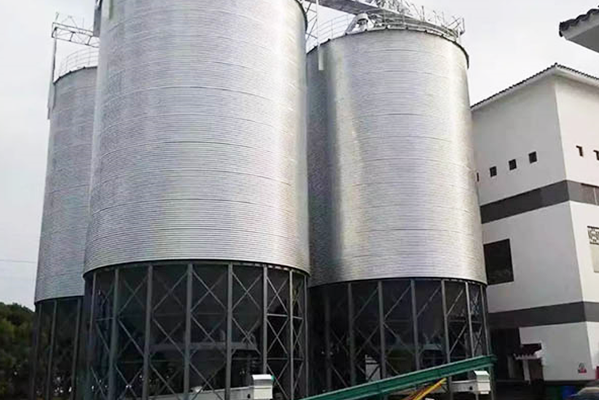Navigation Menu
Contact Us
- Email:
- info@wxavatar.com
- Address:
- Yurong Village, Yuqi Street, Huishan District, Wuxi, China.
Release Date:Mar 17, 2025 Visit:89 Source:Roll Forming Machine Factory
Storing grains in large quantities is a critical challenge for farmers, agricultural businesses, and food supply chains worldwide. Efficient and safe bulk grain storage requires not only proper infrastructure but also advanced grain storage manufacturing equipment to ensure the preservation of quality and quantity. Whether you're dealing with wheat, corn, rice, or other grains, understanding the best practices for large-scale storage is essential to prevent spoilage, pest infestations, and financial losses.
The first step in storing grains in large quantities is selecting the right storage facility. Silos, grain bins, and warehouses are the most common structures used for bulk storage. These facilities are often equipped with state-of-the-art grain storage manufacturing equipment, such as temperature and humidity control systems, aeration systems, and moisture sensors. These tools help maintain optimal storage conditions, which are crucial for extending the shelf life of grains.

Aeration systems, a key component of grain storage manufacturing equipment, play a vital role in large-scale storage. By circulating air through the grain mass, these systems regulate temperature and moisture levels, preventing the growth of mold and fungi. Additionally, proper aeration reduces the risk of hotspots, which can lead to spoilage and even combustion in extreme cases.
Another critical aspect of bulk grain storage is pest control. Insects and rodents can cause significant damage to stored grains, leading to both quality degradation and financial losses. Modern grain storage manufacturing equipment includes integrated pest management systems, such as sealed storage structures, insect traps, and fumigation technologies, to keep pests at bay.
Moisture control is equally important when storing grains in large quantities. Excess moisture can lead to mold growth and spoilage, while too little moisture can cause grains to become brittle and lose nutritional value. Grain storage manufacturing equipment often includes moisture sensors and automated drying systems to maintain the ideal moisture content for each type of grain.
Finally, regular monitoring and maintenance are essential for successful bulk grain storage. Advanced grain storage manufacturing equipment often comes with remote monitoring capabilities, allowing operators to track conditions in real-time and make adjustments as needed. This proactive approach minimizes risks and ensures the long-term preservation of grain quality.
In conclusion, storing grains in large quantities requires a combination of robust infrastructure, advanced technology, and meticulous management. Grain storage manufacturing equipment is at the heart of this process, providing the tools needed to maintain optimal conditions and protect valuable grain supplies. By investing in high-quality equipment and adhering to best practices, farmers and businesses can ensure the safe and efficient storage of grains, supporting global food security and sustainability.